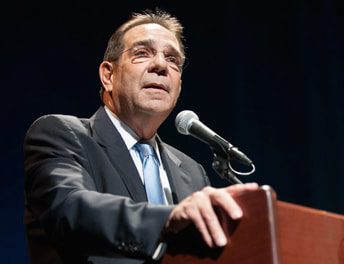|
Getting your Trinity Audio player ready...
|
There has never been such a “summer of discontent” in our beloved Miami. Or maybe I should say there has not been such a period of discord since I settled here permanently in the summer of 1975, when I drove my $75 Buick from Boston to Miami with all my belongings – including my one suit and my $10 record player.
I don’t want to belabor the vicissitudes. Suffice it to say that, as I write these lines, a friend who spends every other Friday serving meals to the homeless downtown now has the COVID-19. Another, much older friend, also has it; in his case it is compounded by three pre-existing conditions: respiratory, heart disease and diabetes.
When the novel virus first hit, those three pre-existing conditions were tantamount to death. Now, perhaps providentially and perhaps due to the great medical care offered by our finest hospital, he walks home cured.
In the meantime, we argue – forever it seems – as to what are “best practices” in terms of shutting down versus reopening the economy. At present, due to fiat and fear, three quarters of the population (including seniors, professionals, students, teachers and those able to work from home) are in a lockdown mode. A close family member, whose daughter and grandchildren all caught the virus, stays in a small, separate enclave of the type we call “in-law quarters” and refuses to set foot in the larger home that sits just a few feet away.
The grandchildren slowly recover from the virus, with no apparent harm to their strong physical constitution. Only one of my own grandchildren (out of eleven) still tests positive, but she insists that she doesn’t have any virus and goes on with a contented life, while her parents happily work from home, at full compensation.
It is not so for the service industries, including healthcare, restaurants, hotels, gymnasiums, and other sundry shops and construction sites where the worker must be present at the worksite. These facilities, and the young people who frequent them, are in the process of reopening. About a quarter of the population is involved in either service or being served, and they, along with those exercising their right to demonstrate in public gatherings, are quite subject to contagion-by-close-contact. As a result, we have entire weeks in Florida in which the infection rate hovers at ten-thousand a day. Luckily for us, the death rate statewide stays quite low, hovering at about 50 per day; in the county, it stays in single digits.
Soon the summer will be over and Miami will experience a renaissance like it’s never seen before. It is not a “new normal.” It is, to borrow from our history and our community college, a “New World” of increased public transportation, increased hygiene, increased work-from-home, and increased enjoyment of our spectacular outdoor spaces, coupled with added numbers of coaches, trainers, trimmers, arborists, bikers, joggers and every kind of caretaker of our amazing facilities.
In a recent commission meeting, I hear Bruce Greer, the long-time chairman of Fairchild Tropical Gardens, advocate for increased funding for the arts and public spaces. Fairchild is a rare jewel in my district, as is Vizcaya, Deering, Marine Stadium, the Historic Black Beach (now called a “Civil Rights Museum”) and a former landfill, covering 117 acres, which will soon be completely scrubbed clean by water that will then be inducted into the sub-soil 3,000 feet down, where its chemical components are shared by the natural environment.
That reminds me of another great improvement in our care of natural resources. Soon, there will be no more pipes that extend six miles into the ocean with treated sewer water. Within half a decade, we must “reuse” most of that sewer water. Already, a goodly portion is being taken by our electric utility to use in cooling their power plant. The rest will experience deep-well induction.
Miami depends greatly on tourists. Our seaport cruise industry will be revamped to prevent outbreaks of any virus or bacteria, using the best technology available. Our airport will reopen mightily to serve the many visitors who want to swim in our beaches and hide from the freezing cold that will soon hit northern climates all over the world.
One good thing has already happened in the area of mass transit. Actually, two good things. One is that as many as 20% of our workforce has shifted permanently to stay-at-home mode. Another, which was announced just this week in plenary session of the county commission, is that all public transit will remain free well into the next fiscal year. The county, as announced by budget director and deputy mayor Jennifer Moon, has reserves to cover that extended period of free public transit. After that, if it is up to me, we will continue free public transit ad infinitum, copying Kansas City and many cities in Europe.
Of course, we will have to be cautious not to overwhelm the mass transit system and not to allow it to become dirty, with dire consequences. We have learned that lesson.
Miami, in what some call the “fall” but is really autumn (from the Etruscan word for “to add”) will undergo a renaissance as has never been seen either here, or anywhere. We will settle our differences by electing freely whomever we want, reenact our industrious ways which have made our county one of the best in the world for new business starts, lift our educational standards so that we become the world’s resilience leaders, and enjoy the gift of Nature’s God that is what the natives appropriately called “Miami,” because it is the southern tip of a peninsula that carries fresh water into the most beautiful bay in the world.
It will be known as the “Miami Renaissance.”







Comments are closed.